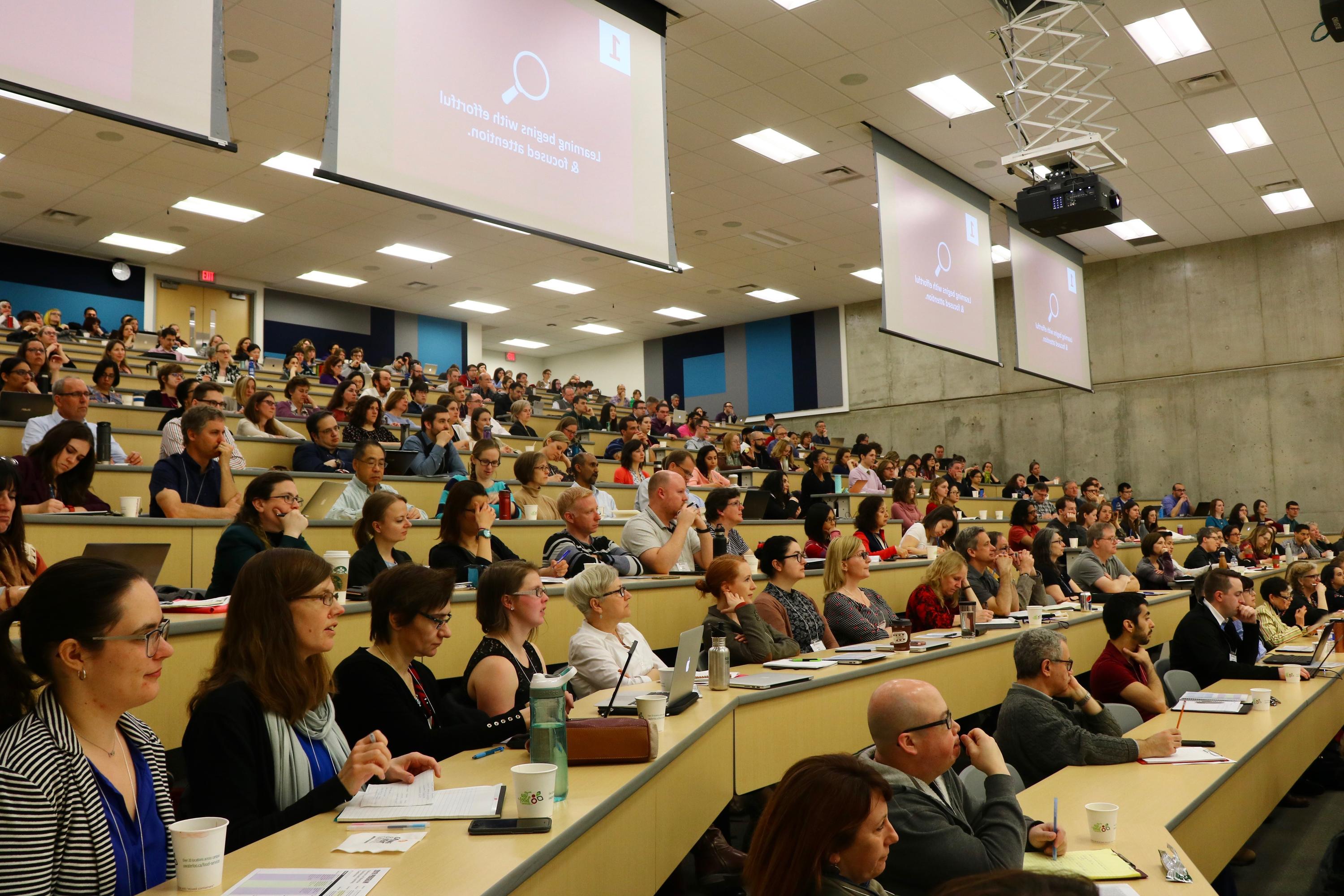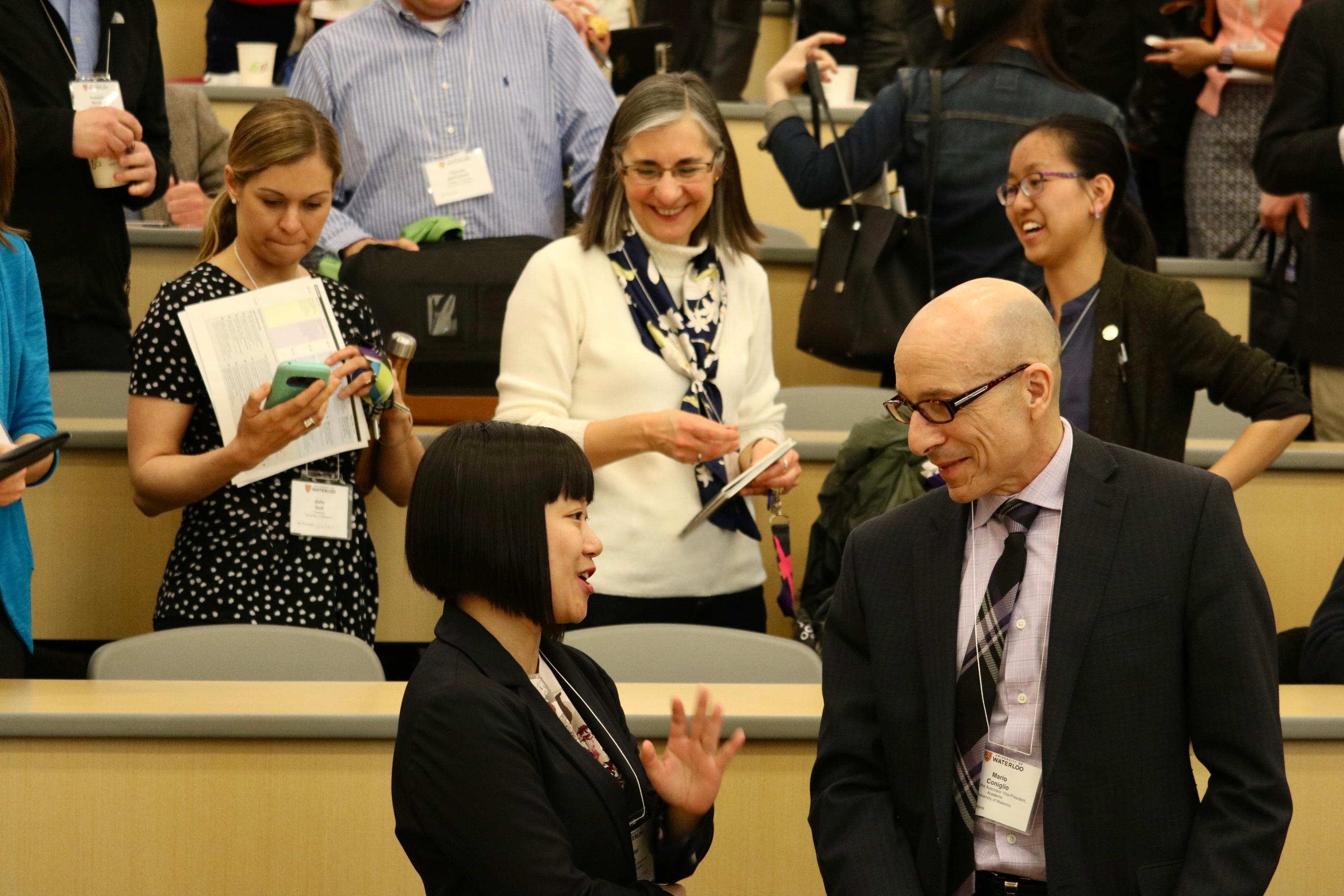
On April 26th, faculty, staff, and students from across campus and beyond gathered to explore the roles motivation plays in how we learn and teach at the University of Waterloo’s 10th annual Teaching and Learning Conference: Motivating Our Students and Ourselves.
Joe Kim, Associate Professor of Psychology, Neuroscience, and Behaviour at McMaster University, kicked off the conference with an exciting keynote talk exploring the connections between student motivation and what Kim calls “durable learning” — learning that remains with students long after the final exam.
The key to durable learning, according to Kim, is learning how to learn. This focus on metacognition was a key take-away for one of the conference attendees, Derek Robinson, Associate Professor of Geography and Environment and one of the Faculty of Environment’s Teaching Fellows. “If we can learn to self-regulate,” Robinson explains, “delaying immediate gratification now for greater reward later, then we would reduce mind wandering, focus our attention on a specific task, become more efficient, and subsequently be happier and less stressed.”
Funded by the Office of the Associate Vice-President, Academic, the conference offers participants a full day of learning with their colleagues and peers as they share their educational research, teaching strategies, and more in interactive workshops, panel discussions, and presentations.
It brings together such a wonderful teaching community. Knowing that other instructors are trying new things and taking risks gives me the impetus to so do as well.
“It helped me build a more holistic view of motivation,” said one participant, Amanda Garcia, a PhD candidate in Systems Design Engineering and recipient of the 2018 Amit and Meena Chakma Award for Exceptional Teaching by a Student. “Each of the sessions brought its own unique take on ways to motivate students, whether it be through the use of technology, classroom strategies, or teaching methods.”
Garcia, who also teaches in the Faculties of Engineering and Environment, commented on how important the annual conference is to sustaining her own motivation as an instructor: “The conference is very special to me. It brings together such a wonderful teaching community. Knowing that other instructors are trying new things and taking risks gives me the impetus to do so as well.”

Tse attributes much of that success to participants. “Each year, participants share their feedback with us, and we listen. Last year’s poster session wasn’t well attended, so this year we approached the session in a new way. We were delighted to see so much engagement at the end of a long conference day.”
Other new initiatives focused on inclusivity and accessibility. Name badges included a space for participants to indicate their pronouns, and were accompanied with a brief explainer on gender identity and pronoun use. The conference website linked to maps showing the locations of accessible entrances, elevators, and barrier-free and gender-neutral washrooms, and the organizing committee developed a new resource for presenters on how to design and deliver accessible presentations.
“It’s not about growing larger each year,” Tse says. “It’s about creating a rich, meaningful environment for instructors at Waterloo to learn from and with one another about teaching and learning. We’re so thankful to our volunteers, peer reviewers, and presenters for helping to make the day a success.”
By Lisa Kabesh, Communications Associate, Centre for Teaching Excellence